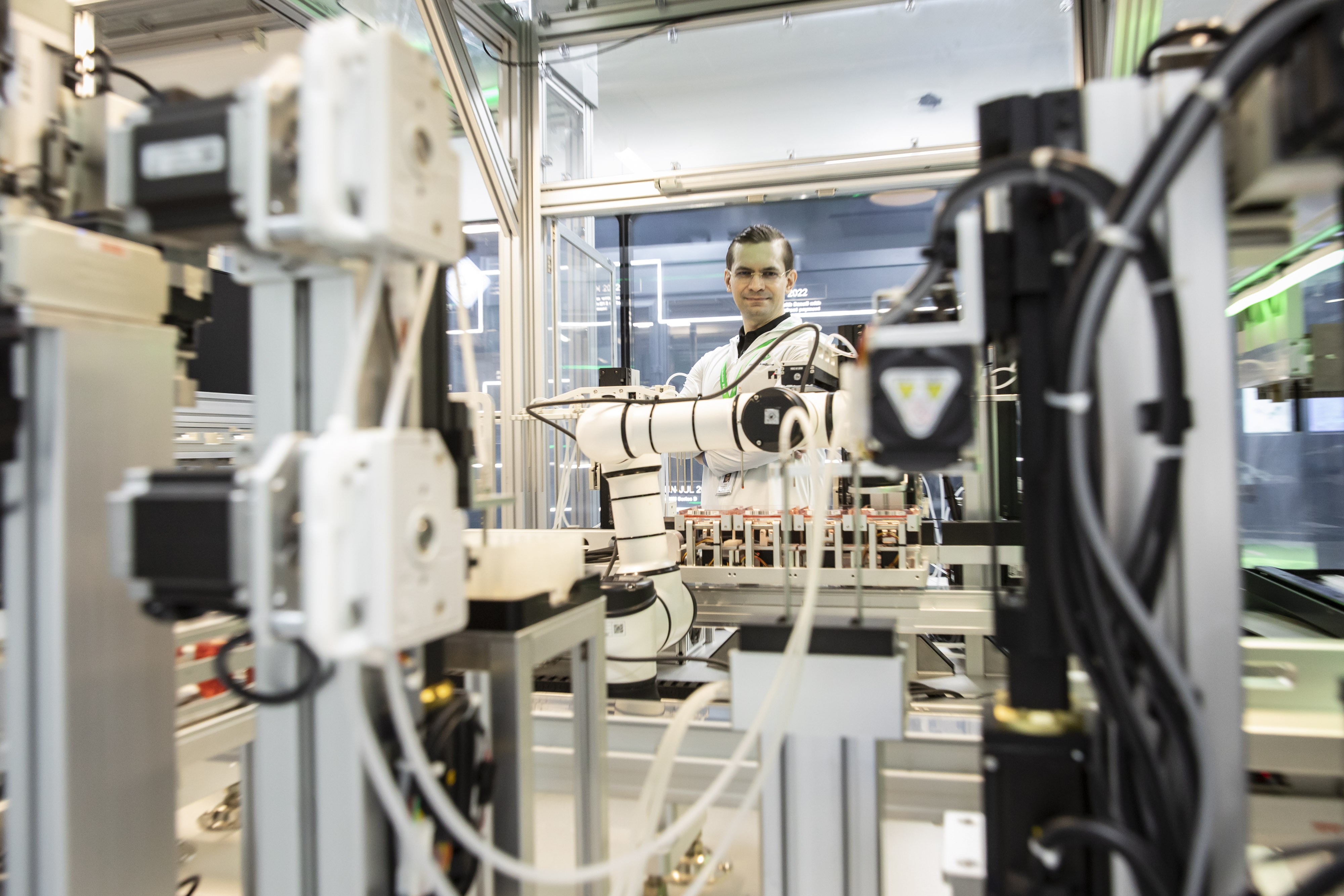
A drug developed using artificial intelligence showed signs of efficacy in treating an incurable lung disease in what its developer calls a clinical first.
Insilico Medicine, the biotech company with twin headquarters in Boston and Hong Kong, said it’s the first time an AI-created drug, working on an approach identified by AI, passed a mid-stage clinical study.
The company’s lead drug, named rentosertib, when given at the highest dose spurred improvement in lung function in a small group of patients with idiopathic pulmonary fibrosis — lung scarring that makes breathing difficult, according to a paper published in Nature Medicine on Tuesday. A biomarker analysis showed it worked exactly as envisioned on a molecular level, cutting a protein that AI hypothesized was tied to the disease.
READ MORE: Sources: AI drug firm METiS considering $200 million HK IPO
“This is one of the best results people have ever seen” for the lung condition, Insilico Chief Executive Officer Alex Zhavoronkov said in an interview.
The promise of AI to make drug discovery more efficient has inspired billions of dollars in investment from large drugmakers and startups alike. While some have made progress with drugs selected or optimized by AI – with Takeda Pharmaceutical Co aiming to launch one such drug within the next two years – early efforts to conceive and design treatments using AI have largely fallen short.
Plans are still being formulated for larger trials needed to substantiate rentosertib’s effect and pave the way for regulatory approval, which is at least two years away under the best-case scenario. Zhavoronkov said Insilico has the funding for the trials, but needs to collect feedback from both regulators and potential pharma partners before deciding on the path forward.
READ MORE: PolyU harnesses AI, robotics to drive medical innovation in Hong Kong
The data will serve as a demo for Insilico’s 30-plus programs, and help improve its AI model, he said.
But data on some other metrics were inconclusive. Plus, the study enrolled only 71 patients, all in China, and ran for just 12 weeks. A few patients taking the drug saw their condition get worse, and several others developed liver abnormalities, which Insilico researchers said will need to be watched in future trials. Zhavoronkov believes the side effects are manageable and the drug is “reasonably safe” given it tackles a serious and deadly disease.
By his estimates, it takes 4.5 years to deliver a drug candidate ready for clinical trials using traditional methods. With rentosertib, the timeline was 18 months.
ALSO READ: Bright path ahead for AI and public wellness
It will take much longer to prove the drug works in humans. Insilico is running a parallel mid-stage study in the US, and will continue to explore clinical trials in both China and the US. “The speed of traffic is the same for everybody,” he said.
Founded in 2013 to provide soup-to-nuts solutions, from disease hypothesis and drug optimization to preclinical testing, Insilico recently filed to list in Hong Kong.


